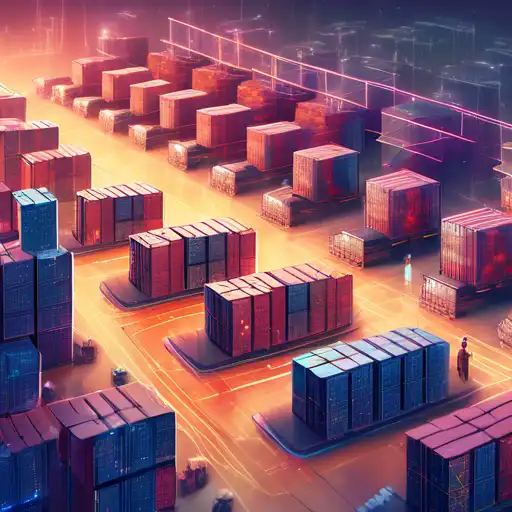The Transformative Impact of Blockchain on Supply Chain Management
In recent years, blockchain technology has emerged as a groundbreaking innovation with the potential to revolutionize various industries, including supply chain management. By offering unparalleled transparency, security, and efficiency, blockchain is setting new standards for how goods are tracked and transactions are recorded across global supply chains.
Understanding Blockchain in Supply Chains
At its core, blockchain is a distributed ledger technology that allows data to be stored globally on thousands of servers. This means that every participant in the supply chain can view the data in real-time, but no single entity can alter or delete it without consensus from the network. This feature is particularly beneficial for supply chains, where the authenticity and traceability of products are paramount.
Key Benefits of Blockchain for Supply Chains
- Enhanced Transparency: Every transaction or movement of goods is recorded on the blockchain, providing a transparent and immutable history of the product from manufacture to delivery.
- Improved Security: The decentralized nature of blockchain makes it highly resistant to fraud and cyberattacks, ensuring that sensitive supply chain data remains secure.
- Increased Efficiency: By automating transactions and eliminating the need for intermediaries, blockchain can significantly reduce delays and costs associated with traditional supply chain processes.
- Better Traceability: Blockchain enables the tracking of products in real-time, making it easier to verify authenticity and quickly address any issues that arise.
Real-World Applications
Several industries are already leveraging blockchain to enhance their supply chains. For example, in the food industry, companies are using blockchain to track the journey of products from farm to table, ensuring food safety and reducing waste. Similarly, in the pharmaceutical sector, blockchain is being used to combat counterfeit drugs by providing a secure and transparent record of the drug's supply chain.
Challenges and Considerations
Despite its potential, the adoption of blockchain in supply chains is not without challenges. Issues such as scalability, interoperability, and regulatory compliance must be addressed to fully realize the benefits of this technology. However, as blockchain continues to evolve, these challenges are expected to be overcome, paving the way for wider adoption.
Looking Ahead
The integration of blockchain into supply chain management represents a significant leap forward in how businesses operate. With its ability to provide transparency, security, and efficiency, blockchain is not just revolutionizing supply chains; it's redefining the future of global trade. As more companies recognize the value of this technology, we can expect to see even more innovative applications in the years to come.
For those interested in exploring how blockchain can transform their supply chains, it's essential to stay informed about the latest developments and consider partnering with technology providers who specialize in blockchain solutions. The journey towards a more transparent, secure, and efficient supply chain is just beginning, and blockchain is leading the way.
